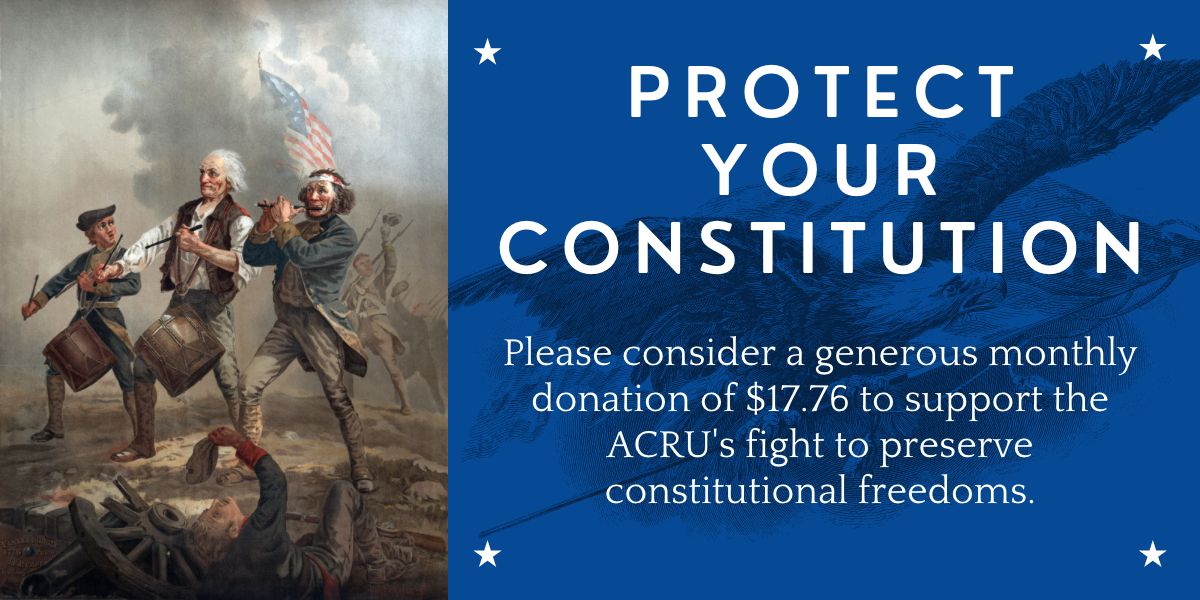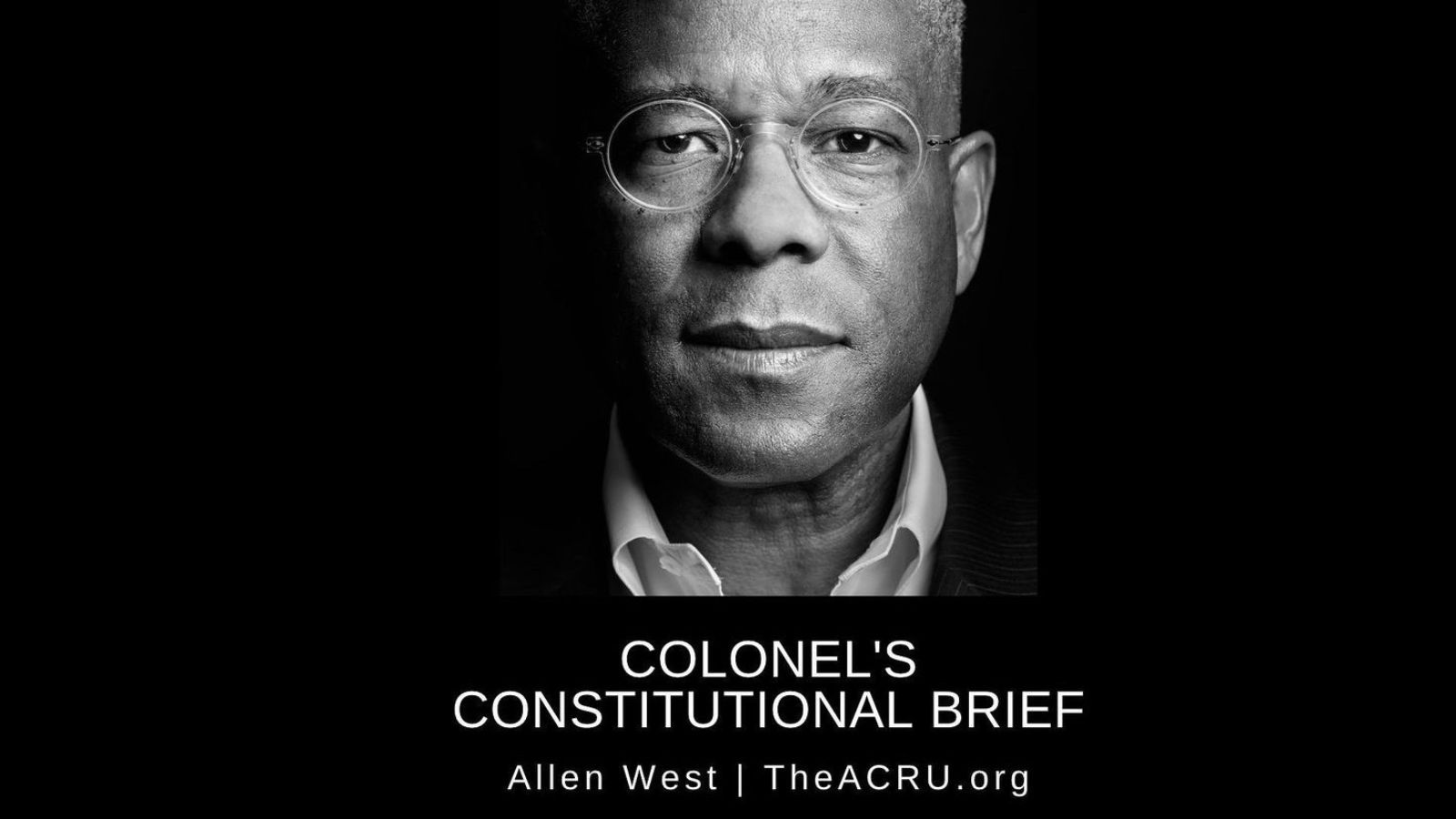Left Likes Fuzzy Math on Election Day
ACRU Staff
November 26, 2012
This column by ACRU Senior Fellow Robert Knight was published November 23, 2012 on The Washington Times website.
Pawing through the ashes of Mitt Romney’s defeat, it’s clear that if the Republican Party wants to compete nationally, it has to do several things, such as re-message timeless traditional values, attract more young and minority voters — particularly Hispanics — and do a better job of getting out the vote.
This will be moot if the integrity of the voting process is not restored.
From Republican Rep. Allen B. West’s improbable recount loss in South Florida, to reports of voting-machine irregularities, to the hundreds of precincts in Ohio and Pennsylvania that reported a virtual 100 percent vote for Barack Obama and zero for Mr. Romney, something is clearly wrong.
“It’s kind of a weird coincidence that, in Philadelphia, where more than 50 precincts reported no votes for Romney, that Democratic officials kicked GOP poll watchers out of the polls,” Heritage Foundation scholar Hans von Spakovsky told me in a phone interview. “They went to court, and that took a couple of hours, so what happened while they were gone?”
One of the biggest problems is the increase in early voting and mail-in ballots without a photo-ID requirement. As the left-wing Brennan Center points out, there are relatively few examples of vote fraud reported on Election Day itself. That’s partly because the media are not interested, and because it’s far easier to cheat during extended periods of mail-in balloting.
Ohio’s Wood County has a population of 126,355, with an estimated 21 percent younger than 18 who can’t vote. That means that only about 100,000 residents can legally vote. Yet the secretary of state reports that 104,461 people are registered to vote. To make a long mystery short, consider that Wood County is home to Bowling Green University, which has 20,000 students.
“When those students graduate or leave school, many don’t cancel their voter registration, which leaves the Wood County Board of Elections facing a bit of a conundrum: How can you tell when a voter is no longer a voter?” the Columbus Dispatch asks in an article, “Vote Fraud in Wood County?”
The director of the Wood County Board of Elections told the newspaper that the operating policy is to wait two national election cycles and then try to contact the voter to see whether they still live in the county. This means that students who voted in 2004 and 2008 and left campus long ago could have voted there anyway in 2012 as well as wherever they went.
The Help America Vote Act of 2002 requires states to purge their voter rolls, but not to remove names until two national election cycles have passed. Moreover, the states are not required to compare their lists against those of other states. This leaves a lot of room for fraud.
In the next two years, expect the left to sponsor legislation to introduce early voting in the 18 states that don’t have it. They also will try to have more photo-ID laws blocked by the U.S. Justice Department and weaken laws that require even minimal IDs for mail-in ballots.
At the same time, conservatives will make the case for requiring photo IDs for voting and for mail-in absentee ballots, expanding citizenship requirements, and ending or at least reducing early voting.
One of the main arguments for early voting is that it’s supposed to increase turnout. It doesn’t. With more states allowing it, turnout was significantly down, with about 5 million fewer people voting in 2012 than in 2008. In the 10 battleground states — Colorado, Florida, Iowa, North Carolina, New Hampshire, Nevada, Ohio, Pennsylvania, Virginia and Wisconsin — turnout percentage decreased in all but one state, Iowa, according to the Bipartisan Policy Center.
Early voting undermines the secret ballot, reduces the importance of the national Election Day, costs taxpayers far more than a single voting day, forces campaigns to spend more over a longer period of time, and finally, prevents voters from exercising a change of heart if more information surfaces before Election Day. (Benghazi, anyone?) “We don’t let jurors decide in a trial before all the evidence is heard,” says conservative activist lawyer Andy Schlafly. “Elections are just as important.”
Help may be on the horizon. The U.S. Supreme Court has agreed to hear a case in which Arizona is challenging the U.S. Court of Appeals for the 9th Circuit’s ruling overturning that state’s proof of U.S. citizenship requirement for voting. Only three states — Arizona, Georgia and Kansas — have enacted proof-of-citizenship laws, with a Kansas law taking effect in 2013, and Arizona’s in limbo until the court rules.
In another important voting case, on Nov. 9, the Supreme Court agreed to revisit Section 5 of the Voting Rights Act of 1965 by hearing Shelby County, Ala., vs. Holder, Department of Justice, et al. The law requires the Justice Department or a three-judge federal panel in the District of Columbia to approve any changes in election laws or districting in nine Southern states and some other local jurisdictions around the nation. Congress enacted the law to prevent racially motivated voting violations.
In 1966, the court upheld the act in South Carolina v. Katzenbach, citing the clear history of racial discrimination. But the court also indicated that if conditions change, the constitutionality of the act might be revisited.
That would be a good thing. Citing the Voting Rights Act, the U.S. Justice Department under Eric H. Holder Jr. blocked perfectly good photo-ID voter laws in South Carolina and Texas despite a 2008 Supreme Court decision upholding a similar law in Indiana.
There’s no evidence that voter-ID laws “suppress the minority vote.” There is evidence, however, that in some places like Pennsylvania, where such laws have been neutralized, vote fraud occurred.
Did vote fraud make the crucial difference in the 2012 election? Maybe, maybe not. It’s difficult to account accurately for millions of ballots.
That’s just the way the left likes it.
JOIN ACRU's PATRIOT CLUB



